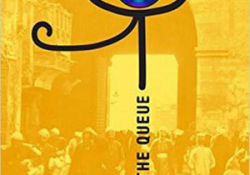Scenes from the Life of an Autocrat

Who needs confusing laws and bothersome committees when you have an autocrat writing principles for every aspect of your life?
He was not tall or broad-shouldered, as one might have hoped, though he did have a rather large forehead, as befitted his formidable position. His paucity of hair only added to the impression made by his forehead, and confirmed his brilliance. He’d never been bothered by his premature balding, because he was aware that his expansive forehead was a declaration of intelligence. He was never seen wearing anything other than a full suit and pink tie, and no one was unacquainted with his work at the Department that governed the country. He was the Autocrat: the sole person in charge of crafting the Public Poli-Strings that structured citizens’ lives, and the only man with full authority over them.
The Autocrat opened his eyes before the sun rose each morning, sensing the enormity of the duties placed on his shoulders. He knew that he alone was responsible for the entire country. His mind worked twenty-four hours a day, and his health was excellent. He never neglected to look after his well-being—not for his own sake, but for others; it was for them that he lived and worked so hard. The only exception was a slight redness to his eyes, the result of many a late night, but this he remedied with the occasional eyedrop.
His position shouldn’t be discussed at length, given its top-secret nature, and doing so without authorization risks serious consequences. Discussion of Public Poli-Strings, on the other hand, is perfectly ordinary: no restrictions imposed or precautions necessary; it is, in fact, encouraged. You see, shortly after the Autocrat took office, newspapers and magazines affiliated with the Department assumed the task of educating the populace. The Autocrat was an organized man, fond of rules and regulations. He immediately began to establish principles that had to be abided by under his rule. These were less like explicit or systematic directives and more a set of terms and guidelines. Published periodically, they were rather puzzling at first glance but made more sense when the Poli-String Framework appeared. Everyone, without exception, obeyed the Poli-Strings, and all agencies operated in accordance—Security, Media, Alimentation, even Healthcare—just as the veteran Cultural Agency instructed.
The Autocrat dedicated the last day of every month to crafting Public Poli-Strings. With perfect posture and the utmost enthusiasm, he sat at his wide desk, pen in hand. No one interrupted his thoughts, even if he sat there for hours plucking a String, or two, or perhaps more, from his dazzling mind and putting his ideas on paper. Each time he finished, he smiled contentedly at his work. He called his assistant to transcribe the latest Poli-String, seal it with the Official Emblem, and add it to the Official Lexicon. Then it was circulated to all national agencies, who used sympathetic methods to disseminate it to the people.
The Autocrat deleted words that society no longer needed, like “elect,” and introduced new terms of great importance, which outlined groundbreaking ways of being patriotic that no one had considered before.
The Official Lexicon, in case you haven’t heard of it, was filled with the Autocrat’s innovations, which naturally no one reviewed and no one questioned. It would have been improper to spark pointless debate among citizens, and besides, no one dared to challenge the contributions this man had made to the humanities over the years. He spearheaded the advancement of countless definitions relating to values, morals, and proper behavior. Prior to him, none of them had been adequately precise. He also deleted words that society no longer needed, like “elect,” and introduced new terms of great importance, which outlined groundbreaking ways of being patriotic that no one had considered before. Average citizens rose to fame for embodying this new patriotism, and for the first time, large institutions honored certain citizens with prizes. People were delighted with these well-deserved awards. They sat in front of their TV screens cheering the recipients, who appeared in celebrations broadcast live and were invited onto talk shows. With enviable skill, the Autocrat also outlined the defining characteristics and qualities of traitors, and grouped these under a comprehensive definition. Thousands of people were arrested, and citizens were outraged at the discovery of such corruption breeding under their noses. They began peering into the faces of their relatives and neighbors, using the Lexicon and its definitions as a guide, to help the Department expose any remaining spies. Despite how busy he was, the Autocrat always had time for spiritual matters. He even rewrote the definition of miracles one particular holiday. He issued a decree, held a huge celebration, and delivered a speech on the subject, in which he announced a few miracles he’d personally performed, all to bring people joy.
Tracking Public Poli-Strings became a national pastime. Government staff sat in their offices with cups of health tea on their desks, pen and paper in hand, and endeavored to understand the new terminology and outdo one another’s explanations. Health tea itself began as a strange term. It appeared in one of the Autocrat’s decrees, and staff struggled to explain the term and the Public Poli-Strings that referenced it. A few days later, people realized that health tea meant tea without sugar. The definition was timely. There was a shortage of sugar, and the price of a single bag had risen to that of a carat of silver or gold. Meanwhile, the Health Agency announced that the Department cared deeply about citizens’ well-being, perhaps more than they did themselves. People had to pay attention to dangerous eating habits that could destroy their bodies, it said. The Security Agency upheld its duties admirably and arrested saboteurs who were clearly uncommitted to maintaining their health: men and women caught in the street carrying a kilo or two of sugar. The campaign expanded, and soon schoolchildren who arrived in class cheerfully were detained too. Their good mood was evidence of having consumed sugar that morning, and their mothers were called in for interrogation. The situation was not to be taken lightly; the Autocrat was no silly man issuing decrees at random—people realized their health was important. Tea needed to be healthy, as did milk, and the same went for juice and cookies and every kind of candy. People abstained from thinking about sugar or even mentioning the word, and mothers tried to convince their children that good things come to those who eat unsweetened food and drinks. Newspapers dismissed reports that the sugar crisis would spread to other commodities as false rumors spread by malicious troublemakers. The Cultural Agency deleted all scenes from films and TV where the hero added sugar to his tea and also produced a series of advertisements with the tagline: “Enjoy life! With a bag of pickles.” In response to all this, the people praised God, because the Autocrat knew everything and the Department managed everything.
The Security Agency upheld its duties admirably and arrested saboteurs who were clearly uncommitted to maintaining their health: men and women caught in the street carrying a kilo or two of sugar.
As time went by, Public Poli-Strings became central to citizens’ lives. People dedicated all their efforts to keeping track of Poli-Strings and abiding by them, if only because they feared disastrous consequences for themselves and their bodies if they accidentally strayed. Trying to read between the lines of decrees became a sacred practice, more holy than worship or prayer. When an employee entered the office, said good morning, and asked what he’d missed, his colleagues would rush to reassure him or offer to fill him in if a decree had been issued while he was out. Public Poli-Strings were added to the curriculum, and doing well in the course was essential—if students failed, they’d have no chance at a future. As for the Autocrat, monthly decrees were no longer enough. His responsibilities were growing, and Poli-Strings had to address every aspect of life, great and small. Nothing could be left to independent judgment because people didn’t know what was in their best interest or how to tell right from wrong. He redoubled his efforts and worked tirelessly to carry out his responsibilities. He issued a new Poli-String every week and soon was convinced he had to issue them daily to meet the growing need. Every time he plugged one gap, another one opened up, and every time he solved one crisis, a second and third and fourth one arose, but he never complained and never told a soul how tired he was, not even his personal assistant.
The Autocrat was resolute and persistent, and grew more brilliant every day. The greatest evidence of this was his creation of a new kind of atheism, whereby the unbeliever wasn’t cast out of religious circles. Citizens were horrified when they first heard of his innovation, and there was a great uproar. A Poli-String was issued authorizing citizens to call themselves religious even if they were atheists, and to devoutly observe religious teachings even if they didn’t believe in them. The inverse was also perfectly acceptable, as long as citizens declared their commitment to Public Poli-Strings and memorized the numbers of decrees that supported their views. Then the Autocrat added a word alongside justice, so that it became known as turbo justice, and the second word could not be written unless accompanied by the first. Turbo justice was a difficult term, even for seasoned linguists and lexicologists, but luckily the Media Agency carried out its role with expertise. Citizens learned that turbo justice meant automatic execution for anyone who violated Public Poli-Strings or opposed them from within their prison cell. Executions were carried out without a trial, or after a perfunctory trial that took no more than a few minutes. This too was met with wide approval, because anyone who opposed the country’s Poli-Strings—which had prompted a renaissance in the country—deserved certain punishment.
Dossiers filled with laws and committees tasked with developing regulations for them soon became pointless, because the Autocrat retired both dossiers and committees alike. They never warranted a glance from judges or lawyers anymore and sat on shelves accumulating dust. Laws had been hard to understand anyway and even harder to implement, and people quickly recognized that Public Poli-Strings filled their place admirably. People became increasingly attentive to Poli-Strings. They they eagerly studied the Department’s newspapers and magazines, scrutinized every word, and followed official TV channels like moths drawn to a dazzling light. No one went for walks, spent time in cafés, attended the movies or theater, or even sat at the computer watching porn anymore. The Autocrat was touched by their devotion and sometimes teared up while crafting Poli-Strings, imagining the people being awed by his abilities, until he too was drawn to his work like a magnet. The country enjoyed great stability during his rule. Citizens were engrossed with following his successive decrees, and the effort exhausted them. Streets fell empty. Crowds waiting for public transportation disappeared. Life ground to a halt as people waited in anticipation of what improvements he would make in the early hours of the day.
One morning he woke up in a mild mood, with a twitch in his eye. The usual joy he felt every day before sitting down at his desk was absent. He stared out the balcony window for a long time. He concentrated on urging the sun to rise early like he had, but it didn’t respond. Perhaps the reflective glass prevented it from receiving the order, he thought. He almost issued a decree to remove the glass, but then he hesitated and decided he would wait until he finished his tasks for the day, although those felt unusually burdensome. He wondered briefly why he was upset, and then he remembered that his mother had died the day before. She was a sweet, compliant woman and had never overlooked a term or missed a definition. She’d abided by his Poli-Strings down to the letter, even when she became sick, and refused treatment in accordance with his decree on disease, which urged citizens to combat disease by using their natural immune systems. Only at the end did she try to get medicine for her pneumonia, and by that time the infection had taken over both of her lungs, but all the pharmacies had shuttered their doors to allow citizens to defeat bacteria through will and determination. She redoubled her efforts at self-healing and began to parrot the Agency’s advertisements, burn incense, and recite the Quran, but eventually she gave up the ghost, still convinced of her patriotic approach.
He didn’t understand how she could have died without his permission or authorization. Thinking about it wore him down. His eyes became red, and the twitch—which spread from his right eye to the left over the next few days—kept him from sleeping. Then his hand began to twitch when he was holding his pen, and this terrified him the most; he hadn’t written anything for a week. Without the usual decrees, the citizens became terrified too. Some began scouring the newspapers hundreds of times a day, hoping to find a term or Poli-String to set their minds at ease or alleviate their growing anxiety, but it was no use. They felt naked all of a sudden. There had been no warnings, no chance for them to adapt. No Poli-Strings to show them what was right and wrong, nothing to tell them what to do. They fell into a strange void, and the Autocrat suffered doubly.
After weeks of this, he finally found a solution, one that had been there all along. He coined a new definition of death, drafted a brief decree, and issued it earlier than usual, too impatient to wait until morning. He summoned his assistant in the middle of the night and handed him a paper that gave death an astounding new definition. Death was no longer death as people had known it. Death no longer meant the disappearance of a heartbeat, or that air ceased its flow in and out of one’s lungs. Death became easier, gentler, and more poetic: “temporary unavailability, for a limited time, wherein the person concerned must reappear immediately upon the issuance of a Return Decree from the Autocrat.” Newspapers circulated the new term and its certified definition, and when the next person died—of cardiac arrest, a result of heightened anxiety from the absence of Public Poli-Strings—the news was reported differently. People welcomed it with joy. They realized that everything was as it should be: their lives were going on, as structured as they were used to under the Poli-Strings.
According to the new definition, there was no need to write an obituary for anyone who died. When a second person passed away later that day inside a police holding cell, the newspapers refused to publish the few lines his father wrote in memoriam. This didn’t cause any problems, though; when the father found out that the Autocrat himself hadn’t published an obituary for his mother, he broke into a smile and apologized profusely for his ignorance. He attributed his mistake to how preoccupied he’d been with the burial procedures for his son; that was why he hadn’t seen the latest decree. He thanked the officials, dashed off toward the Institute, submitted a request for a Return Decree, and sat on the sidewalk waiting for his boy.
Meanwhile, the Autocrat simply didn’t understand why his mother hadn’t responded and come back. She’d always complied with everything he’d said and written since taking office. It must be because she was underground, he reasoned, which prevented the decree from reaching her. So he went to the cemetery and ordered the crypt where her body lay to be opened. He placed the decree on top of her white shroud and stared at her expectantly. Hour after hour passed, but there was no movement to indicate she appreciated what he’d done. He sat down on a large rock in perplexity, rested his large forehead in his palm, and began to perspire.
Back at the wide desk, drawn up to his full height, sat the assistant, in a full suit and tie and with a pen between his fingers. He called out when he finished writing. A young man entered to take the page with its proper seal. And when the decree arrived in citizens’ hands, they exchanged smiles and congratulations, because the Department managed everything.
Translation from the Arabic
By Elisabeth Jaquette













